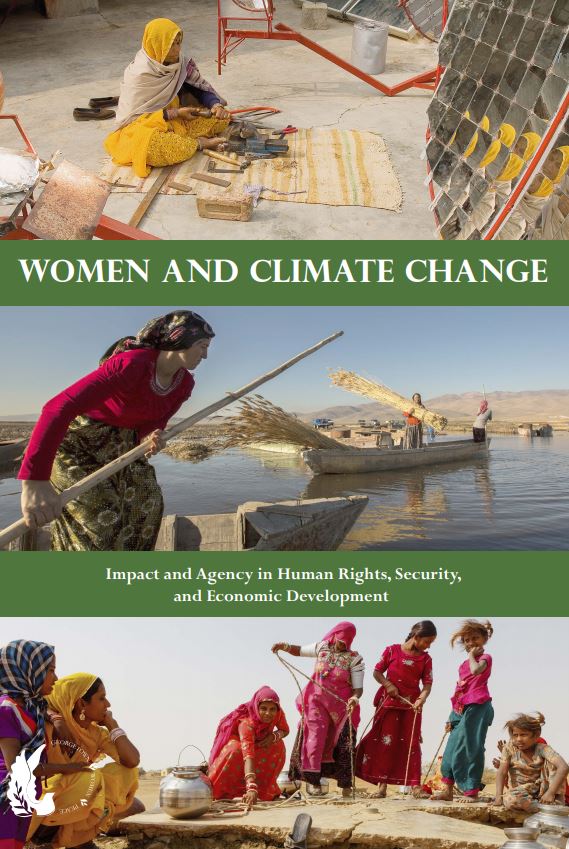Women and Climate Change: Impact and Agency in Human Rights, Security, and Economic Development
Climate change is a global challenge that burdens all of humanity, but not equally. The world’s poor, the majority of whom are women, are encumbered disproportionately. The distinct impacts of climate change on men and women are exacerbated in settings that are also affected by violent conflict, political instability, and economic strife. As the world struggles to grapple with rapid onset disasters as well as respond to slower degradation caused by climate change, it is critical to ensure that the plight of women is firmly on the agenda of concerns, and that women – from different backgrounds – are able to lead in negotiations and participate in the design and implementation of programs.
The report frames climate change as a universal human rights imperative, a global security threat, and a pervasive economic strain. Cataloguing the effects of climate change, the study examines the gen- dered dimensions of sea level rising and flooding; deforestation and ocean acidification; water scarcity; energy production and energy poverty; and climate-related displacement and migration. As part of this analysis, the report not only identifies how women are strained differentially and severely by the effects of climate change, but also how women have, continue to, and could serve as agents of mitigation and adaptation. For example, the section on water scarcity details how climate change causes droughts and soil erosion, which not only disenfranchises women farmers, who are the majority of the agricultural workforce in Africa and elsewhere, but also undermines hygiene and sanitation, affecting maternal health, women’s economic productivity, and girls’ education. Similarly, the section on energy identifies the gendered health, economic, and human security consequences of unmet energy needs of families that lack access to affordable and dependable energy sources. It also highlights the solutions that are working, such as the work of Grameen Shakti to provide clean, renewable energy to rural communities in Bangladesh, in doing so building a new cadre of women solar engineers and technicians.


